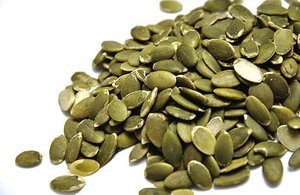Digestive Problems? How To Deal With It Changing Your Diet
Table of Contents
How To Deal With Digestive Problems After Changing to a plant-based Diet?
You changed to the vegan diet and now are often bloated and have digestive problems? You have changed to a vegan diet because you wanted to have a healthier lifestyle. Therefore, it may surprise you at first if digestive problems suddenly occur.
You may wonder if you can tolerate a vegan diet at all. So what if there are some digestive problems during the transition?
Digestive problems usually occur after eating a more natural diet that you have not consumed for a long time.
The more the previous food was processed, the stronger are often the transition problems when you eat now more natural, unprocessed food.
Those who have consumed predominantly heavily processed foods for many years sometimes have stomach problems such as bloating or diarrhea after even a small amount of fresh raw food.
You may be particularly sensitive to legumes such as lentils, chickpeas, and soybeans. The reason is that the intestinal flora, the micro-organisms in the intestine, is not adequately prepared for this form of nutrition.
The good news is: The digestive tract usually gets used to the new diet over time. The stomach and intestines need time to get used to it, a kind of training.
If you have digestive problems during the transition, you should carefully choose and test new foods. Try first and cook easily digestible meals. If you cook potatoes, carrots, leeks, broccoli, and spinach, for example, they are easy to digest.
On lentils, chickpeas, beans you should gently test and eat small portions of it. You can blend them into spreads and gently train the intestines.
Slight flatulence is virtually unavoidable in a healthy diet and is not a concern. When digesting healthy foods, it usually produces digestive gases.

How to Improve Digestion
To improve digestion, you should always eat raw food before cooked food. Eat salads as an appetizer and not as a side dish. Consume Apples also before the main meals. Also, a mix of cooked and raw food, like falafel with carrots and cabbage, can lead to bloating.
Even after eating soy products or other foods, stomach aches can occur. It does not always indicate an allergy or intolerance. As a new Vegan, you should eat while sitting and peacefully. Take your time and chew every bite thoroughly.
Do not forget to exercise; it also helps. Make sure you have enough exercise during the diet change because training is just as crucial to your health and body functions as a proper diet. What about taking a walk after the main meals?
However, usually, the digestive problems resolve after 2-3 weeks. Your gut is now used to the vegan diet, and you can enjoy your food again without any issues.
Natural home remedies for flatulence
When the abdomen makes noises and causes abdominal pain, it is bloated. Flatulence can be annoying and unpleasant and often occurs in combination with abdominal cramps, back pain, and indigestion.
Usually, many gases form in the body; we excrete them through the lungs again. With a bloated belly, the air takes the rear exit. Mostly it happens when the stomach and intestine do not digest the food properly. It gets into the colon and here is fermented by the bacteria living therein.
For our gut to function optimally, it depends on various nutrients. Some foods aid digestion, provide the intestines with nutrients, soothe the colon’s muscles, and reduce bloating.
Warm lemon water

Warm lemon water is one of the most effective home remedies for flatulence. It supports digestion, helps to remove harmful toxins from the body, and provides the body with sufficient moisture. The acidity of the lemon also stimulates the production of hydrochloric acid, which is very important for the cleavage of food.
Also, warm lemon water is perfect for digestion. It relieves flatulence and helps against blockages.
Just mix the juice of half a lemon with a cup of warm water and drink in the morning on an empty stomach and in the afternoon.
Ginger

Ginger contains several active ingredients that help against flatulence. The gingerols and shogaol in the ginger relax the muscles of the intestines, have an antispasmodic effect, and help against pain.
Regular consumption of ginger protects the gastric mucosa, stimulates the secretion of gastric and pancreatic enzymes, and helps to absorb nutrients from the diet. Ginger also helps against heartburn, intestinal inflammation, and irritable bowel syndrome.
In the case of bloating, especially freshly prepared ginger tea helps. For this, finely grate a hazelnut-sized piece of ginger and pour it over a cup of hot water. Cover for 10 minutes and serve to taste with lemon juice. Drink the tea 2 to 3 times a day.
Peppermint

Peppermint contains the essential oil menthol, which helps very well against flatulence. Menthol helps relax the digestive tract’s smooth muscles and has an antispasmodic effect. It can relieve spasms of the gastrointestinal tract, bile ducts, and gallbladder.
Peppermint also aids the digestion of fats, thereby increasing digestion speed.
When bloated, you can either chew fresh peppermint leaves or make tea from them. For tea: Pour fresh or dried peppermint leaves in hot water and leave for 10 minutes. Drink daily 2 to 3 cups of peppermint tea.
Fennel seeds

Fennel seeds have a digestive effect and help exceptionally well against flatulence. They relax the muscles, relieve abdominal cramps, and support healthy digestion. Fennel seeds also have analgesic, antimicrobial, and diuretic properties and stimulate natural metabolism.
A few fennel seeds can be chewed after a meal or prepared as tea. For tea: Pour one teaspoon of fennel seeds into 1 cup of hot water, cover, and leave for 5 to 10 minutes. Strain the tea and drink 2 to 3 times a day.
Pumpkin seeds

Pumpkin seeds provide better digestion. They contain plenty of vitamin A, potassium, and fiber, which aid digestion and prevent bloating.
Just a handful of pumpkin seeds a day helps relieve bloating and aid digestion.
Chamomile tea

Chamomile tea has a relaxing and anti-inflammatory effect. It has anti-spasmodic properties, helps to calm the intestines and stomach, and works well against heartburn and flatulence.
Bring a cup of water to a boil and either infuse a chamomile tea bag or dry chamomile flowers. Cover the tea for 10 minutes and enjoy it sweetened or with lemon juice. Drink the tea 2 to 3 times daily between meals.
Several home remedies help against flatulence and positively affect our digestion. By explicitly integrating them into our diet, we can prevent indigestion and improve our general well-being.
See also Plant-Based Vegan Lifestyle Is It Really More Healthy?
Best Tips On How To Successfully Lose Weight With A Vegan Diet
See also >The Danger of GMO 2.0




